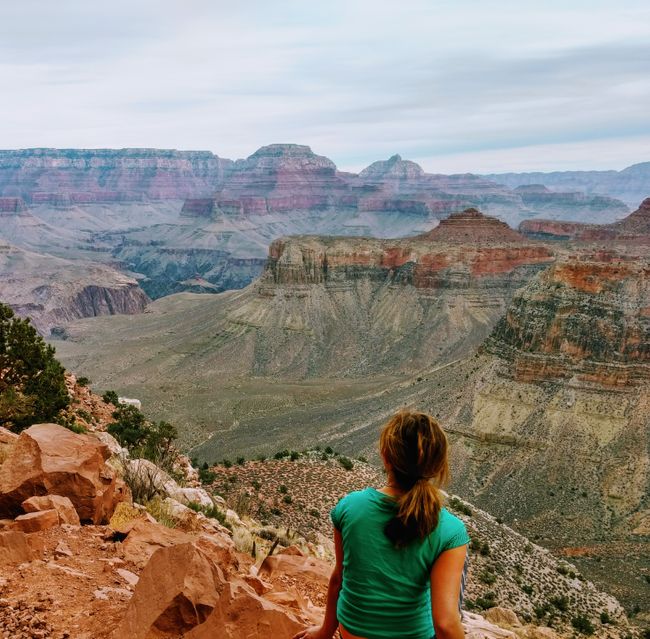Self-discovery in the mountains of Thailand
ຈັດພີມມາ: 28.01.2019
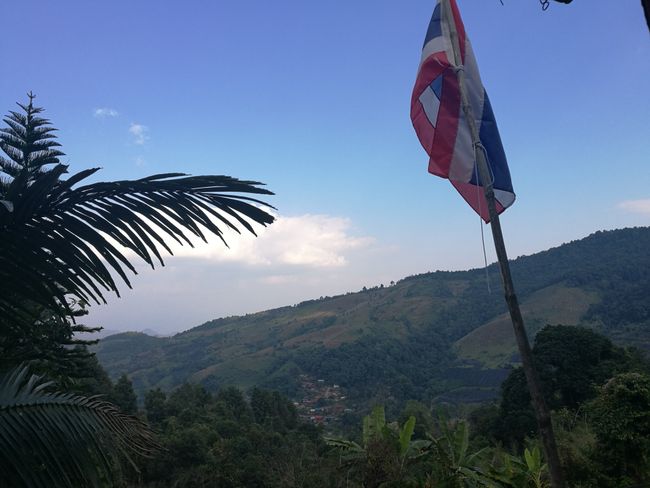
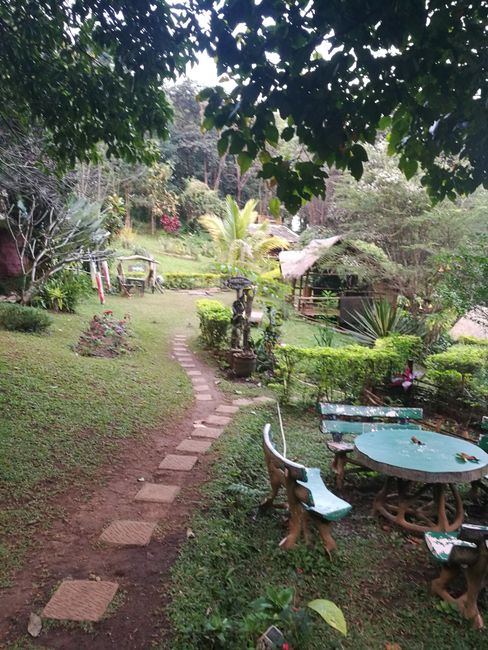
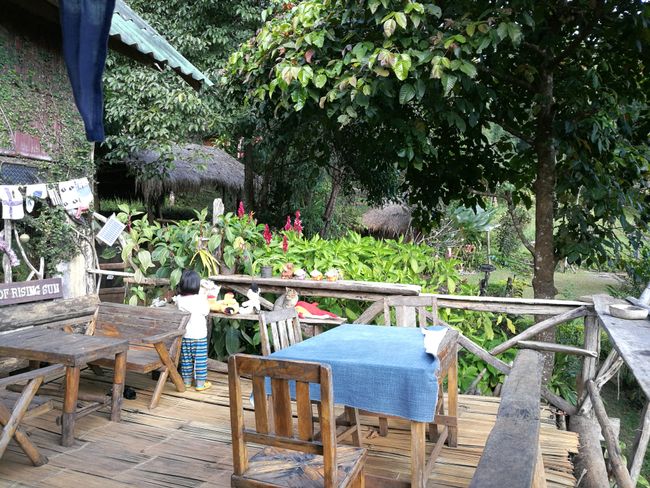
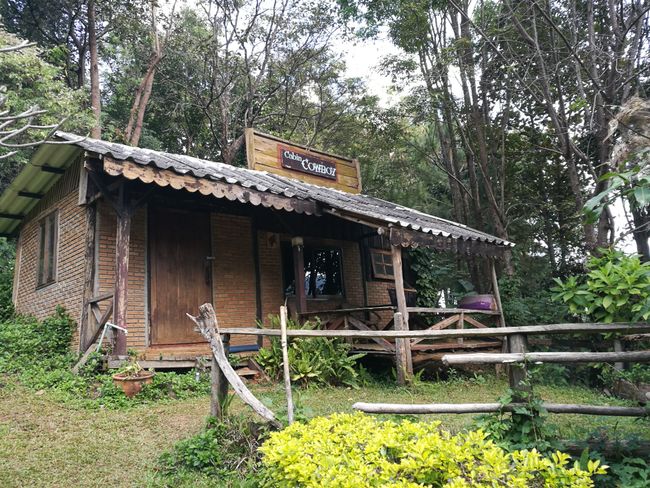
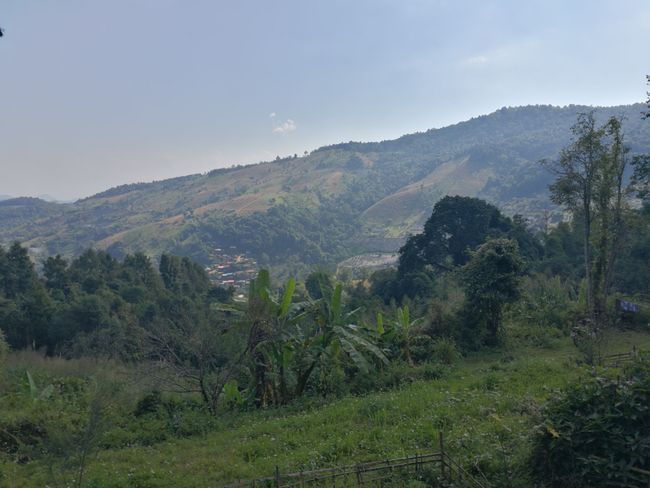
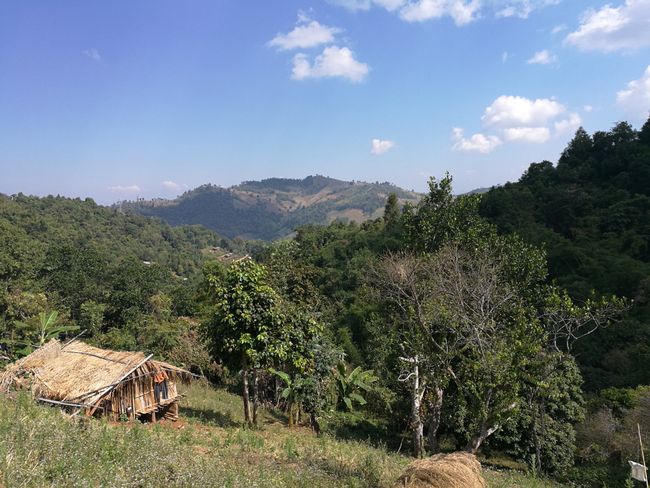
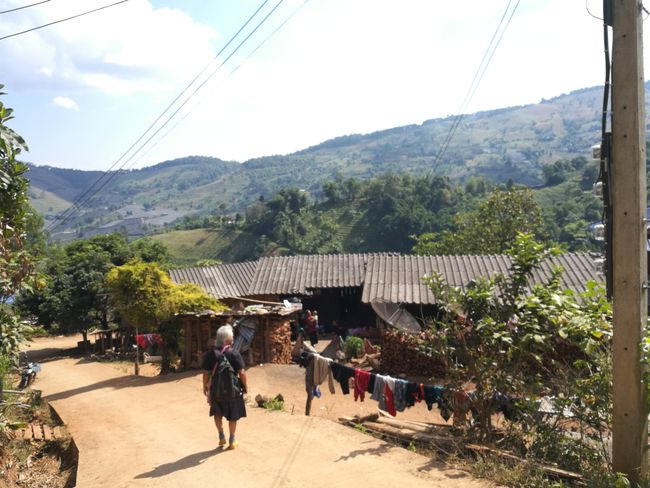
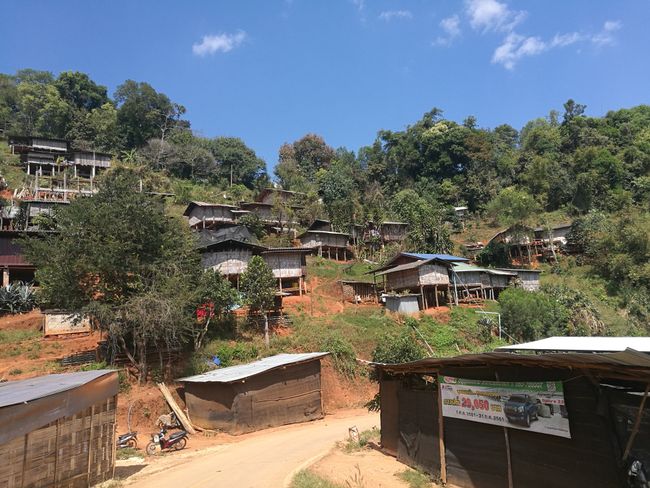
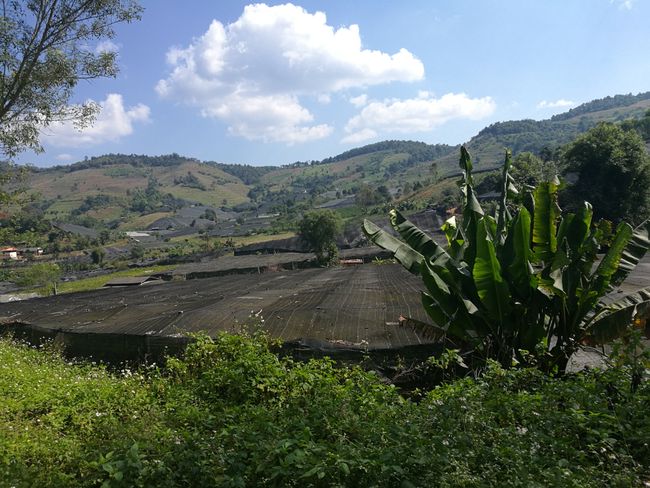
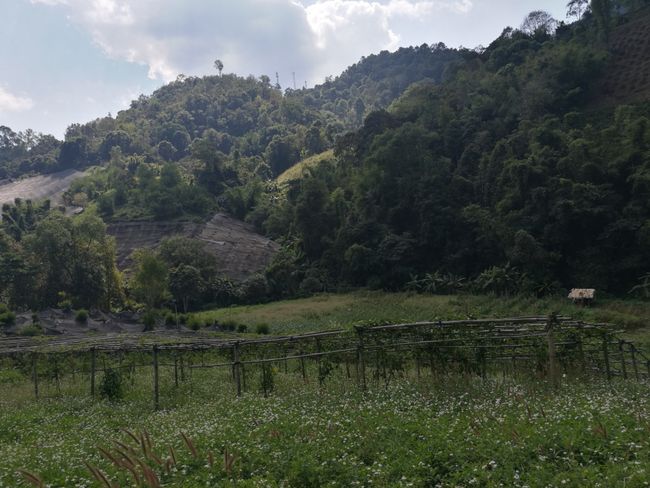
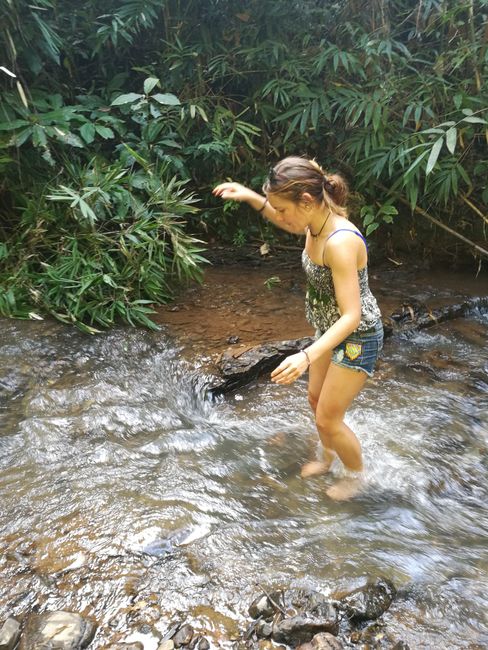
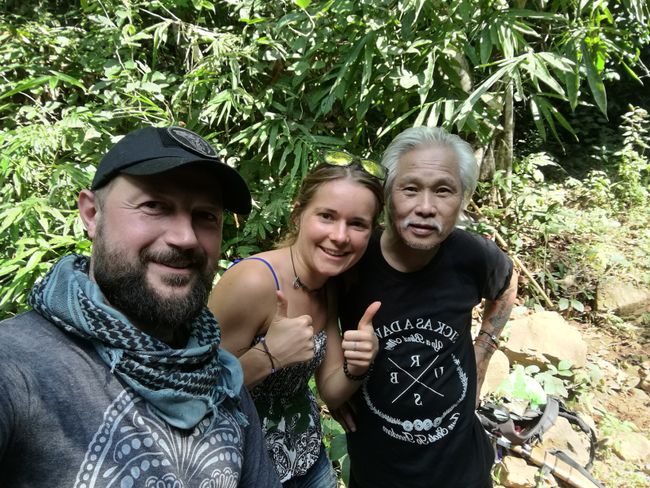
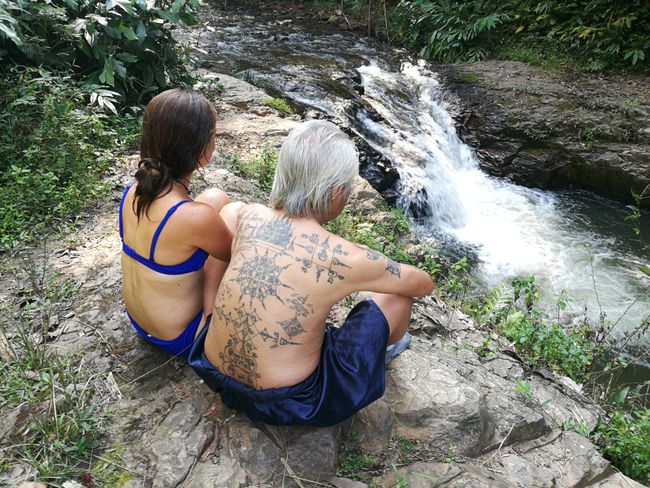
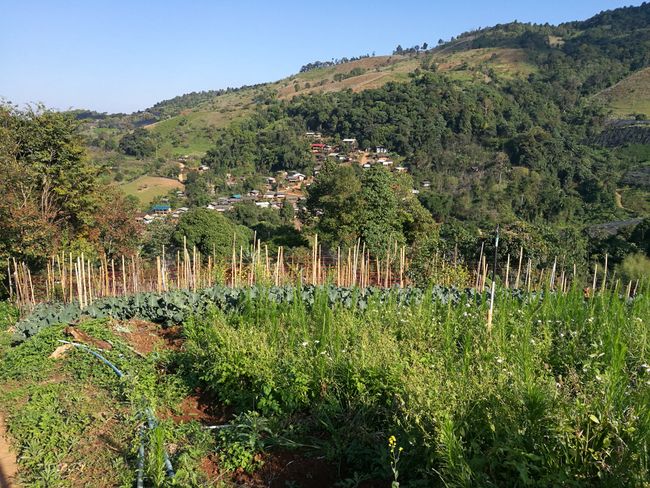
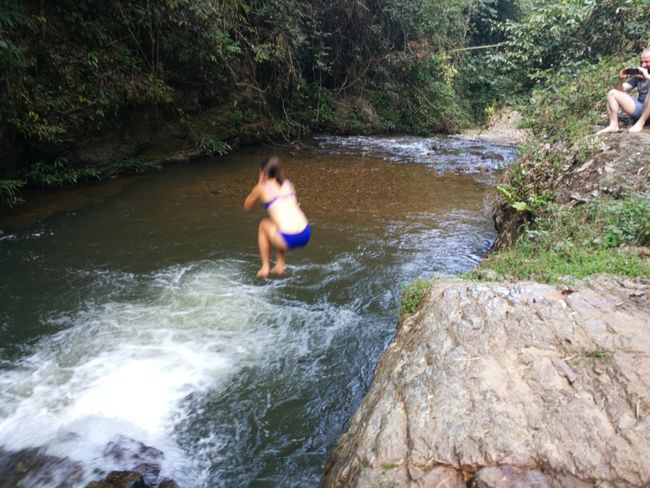
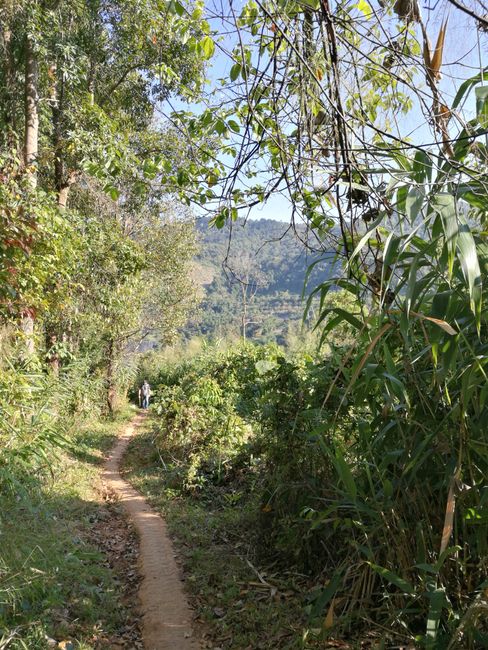
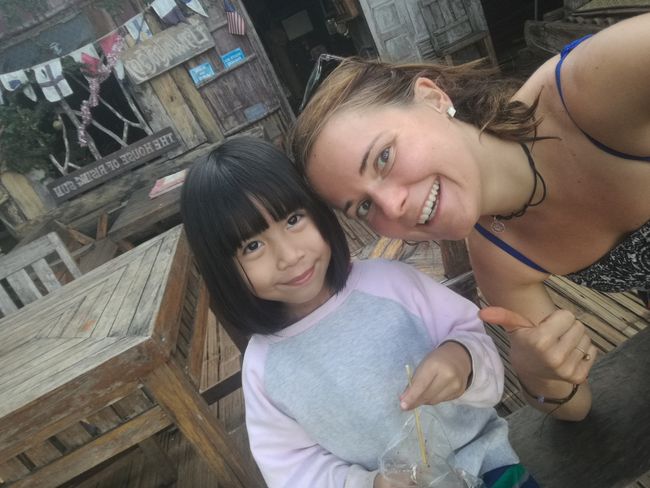
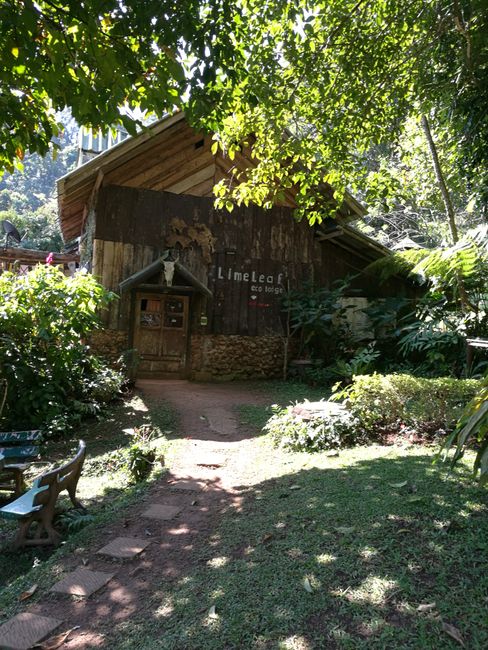
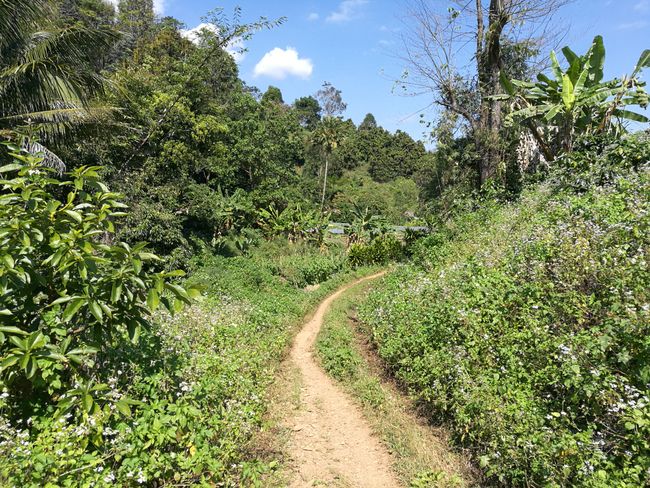
ຈອງຈົດຫມາຍຂ່າວ
Greetings from the night bus to Bangkok. My God, what chaos here. That's what I call an authentic Thai experience, being the only Westerner on a bus full of Thais, none of whom speak English or understand me, not even the staff. Since the night train was fully booked and flights from Chiang Mai to Bangkok were too expensive for me, I chose this option and now I'm taking a 10-hour bus ride through the night in Thailand to hopefully arrive in Bangkok tomorrow morning without being completely sleepless. But it's not just because of the bus that my mood is not at its peak: I'm also quite sad that my journey is coming to an end and that I have to leave beautiful Northern Thailand. The chaotic city of Bangkok will certainly not be my favorite destination, as I have to trade mountains, sea, and Southeast Asian relaxation for stress, dirt, air pollution, and hustle and bustle. But before I speak too negatively about Bangkok already, I'll wait and see what awaits me tomorrow. In the meantime, I prefer to use the travel time to focus on positive things, to remember my last days in Northern Thailand and to share them with you. I told you that I went to an eco lodge to experience an alternative way of life and live sustainably. The lodge was built under the guidance of a British man and is now running so well that some Thais manage it on their own and have internalized the concepts of sustainability. The lodge is located in the middle of the mountains of southern Thailand, surrounded by pure, beautiful nature and tranquility. There are isolated mountain villages all around, but even they are several kilometers away. Da Noi, who now manages the lodge, happened to be in Chiang Mai on the day of my arrival, so she kindly took me from the city to the mountains in her pick-up truck. After giving me a tour of the 'authentic' Chiang Mai and providing me with excellent food at every corner, we drove to the lodge. The journey was quite adventurous; as you can imagine, the roads are not well built and the access road is very winding, so my stomach suffered again. The journey ended about a kilometer from the lodge, where we had to walk because there is no drivable road up there. I'm very surprised how older, less fit guests manage the ascent, as the walk was not exactly a walk in the park. Nevertheless, it was beautiful to hike up a mountain, my favorite sport, where I could already admire the eco gardens of the lodge. Once I arrived at the top, it was no less spectacular: I was greeted by numerous mini cottages and a captivating mountain view. I have never seen such a peaceful, secluded, beautiful accommodation before. It is unbelievably quiet up there, you can listen to nature and do nothing but stare at the mountains and let your soul unwind. The cottages were adorable, each one designed according to a theme (mine was the cowboy cottage with corresponding cowboy furnishings) and invited relaxation. I didn't even realize before that I would have an entire cottage to myself, but I was incredibly grateful for it (even though it was quite expensive), to finally have privacy and a good night's sleep after over 3 weeks of sleeping in dormitories every night. The main cottage housed the reception and restaurant, which is run by Noi and her daughter. They served super good, fresh, delicious food three times a day, grown in their own garden and raised their own livestock. The water came from their own mountain spring and was freshly bottled every day, even the coffee was grown on site. The electricity was only available from a small solar cell, so light and phone battery were not always available and heating and cooking were done with homemade fire. There were only 2 other guests in the lodge besides me, an American who simply longed for peace after a burnout and a Finn who was looking for a place to play the guitar and meditate after a stressful work period in Thailand. The accommodation is really perfect for these two things, surrounded by numerous cats, books, and Noi's two cute grandchildren, it offers absolute peace and the opportunity to find oneself. On the one hand, this is great, I don't think I've ever been to a place that invited more relaxation and self-discovery. On the other hand, it was also a shock to me: Suddenly being so confronted with myself, not being able to distract myself from myself through explorations and activities, and not being able to achieve anything. Oh well, that was pretty tough at first, to endure myself without doing anything, without being on the move and achieving something. Phew, although the surroundings were beautiful, it was still so difficult to tolerate myself in peace, a very sad and frightening experience. But life always gives you what you need: So I am very grateful that Noi's grandchildren kept coming to hug me all the time (I am completely amazed by myself and realize how great children can be ;) ), that the cats had a great need for cuddling, and above all that Pasi, the Finn, was also at the accommodation. I spent a large part of the time with him and could simply tell him about my worries and laugh and cry together with him about how difficult it can be to tolerate oneself. I learned so much from Pasi, probably more than from anyone else during the trip: He helped me find the strength to meditate, gave me hope through his stories that I can find true (self)love and simply dare to do things in life. Pasi is a self-employed therapist in Finland (among other things yoga and Thai massage) and manages to travel, lead exciting projects abroad, and take extensive trips despite being self-employed, and still have clients who come to him effortlessly when he returns home. Pasi has a deep trust in the world, which apparently rewards him again and again. Furthermore, I learned a lot from him about Thai massage and we reaffirmed the deep unity of body and mind. After the conversations and my own great experiences with Thai massage, I am now considering coming back to Thailand soon and also taking a Thai massage course. How great would it be if a therapist can help relax both body and mind and work with both elements. Integrating both would certainly make my self-employment easier, so I hope I will pursue this goal.
Although I learned to appreciate more and more simply reading books, meditating, lying in the hammock while looking at the mountains at the same time (by the way, hammocks are the best thing ever, I absolutely need one), Noi organized a hike for us on the second day. Wilai, her ex-husband and a villager from a nearby village, took Anton, the American, and me through the jungle, mountains, mountain villages, and waterfalls of the area. Wilai was an absolutely positive, fascinating person with excellent English skills, which allowed him to tell us a lot. Although the hiking pace was slow (Wilai is 66, the average life expectancy of the mountain villagers is 65-70), he showed us wonderful corners of the jungle far away from any hiking trails and tourism and gave us authentic insights into village life. Luckily, the village he took us to had a more positive atmosphere than the villages we visited before. People laughed more on the streets and didn't seem to be disturbed by us, at least not outwardly. They relaxed in their cottages, played music, chatted with their neighbors, or worked, but compared to our work, they did it in a relaxed manner without any pressure. In this particular village, there is already money, the main source of income here is the cultivation of ferns. The villagers sell these plants and can afford rice, which is difficult to grow in their area. Wilai believes that the better mood of these villagers compared to others is due to religion: His village still believes in mountain gods to whom regular sacrifices must be made and to whom they are obliged to give thanks for good harvests, etc. As a thanksgiving ritual, they often celebrate communal sacrifice festivals with shared meals, dancing, or singing, which maintains a relaxed village atmosphere. Many other villages, on the other hand, have converted to Christianity through missionary work. And that in the understanding that God has the decision-making power over what he gives or doesn't give to the villagers. If the harvest is bad or the livestock becomes sick, it's simply a punishment from God. They put their responsibility in God's hands, which makes the villagers passive and sluggish and makes them rely more on God than on their own actions, which often makes them grumpy. Of course, whether this is the reason for the different atmosphere remains purely speculative...
Although Wilai did not have the fastest hiking pace, he constantly challenged us: we had to walk through rivers, perform a sacrifice ritual before our lunch, and jump off a waterfall. All very rewarding, unique experiences. In the evening, after a hard day of hiking, Wilai wanted to share another part of his village culture with us, which allowed him to be able to hike so well at the age of 66: opium. So this old rascal got us what he believed to be 'good stuff' and taught us how to smoke opium (but shh, it's not legal here in Thailand). I must admit, a cool experience! You just become very calm and relaxed, the world is wonderful, there are no problems, you feel no pain or suffering, and you relax deeply while grinning to yourself. Conversations also become even more intense under the influence of opium, so we talked until 4 a.m. According to Wilai, us Westerners should use opium much more often, as it alleviates a variety of physical complaints and can even be healing for cancer...whether this is true, I lack the expertise to say. However, I found it a bit alarming that many villagers constantly consume opium, simply because there is nothing else to do in the mountain villages in the evenings, according to Wilai's understanding. Sometimes you have to appreciate TV and other technological gimmicks if they protect against drug use. Oh, and I learned one more alarming fact from Wilai: despite lifelong working in Thailand, he only receives 600 baht (around €16.20, which is unbelievably little even in Thailand) per month as a pension. Consequently, he is forced to offer hikes in order to survive. At the same time, he sees it as his children's duty to support him financially in his old age. Thank God my parents don't live in Thailand ;). Wilai, Pasi, the eco house, nature, animals, children, and maybe also the opium ;) finally taught me how beautiful it can be to just be with oneself, to listen to nature, and to do nothing but reflect on oneself or simply chill. When, after 3 days of doing nothing, I slowly got used to it, I was infinitely sad to have to leave for Chiang Mai again. The noise, the people, the traffic, the poor air quality, it only became clear to me after the break how stressful all of this can be and how much this environment constantly distracts us from ourselves. I once again realized how important nature and tranquility are to me and that I will hopefully take breaks in nature on weekends in Germany as well. Back in Chiang Mai, I had really nice people in the hostel, but I had little desire for joint activities and spent the last 1.5 days there alone by strolling through markets, enjoying good food, and simply chilling by the pool of my hostel. The eco lodge made me realize how wonderful and important it is to take a break and be able to be alone while traveling, and that I can tolerate myself very well, even have to. It's a shame that this realization comes so late, but after the trip is always before the trip for me ;). So in that sense, I will probably explore Bangkok alone tomorrow before flying back to cold Europe. So please prepare some sun dances so that I don't get too shocked by the cold ;).
ຈອງຈົດຫມາຍຂ່າວ
ຄໍາຕອບ (1)
Dieter
Ahoi, Deine Reiseberichte berühren meine Seele und erinnern mich an meine Trips vor einigen Jahren, Verdammt lang her. Leider fehlte mir Deine Begabung das Erlebte zu kommentieren. Du bist schon ein Geschenk. Salut et Liberte 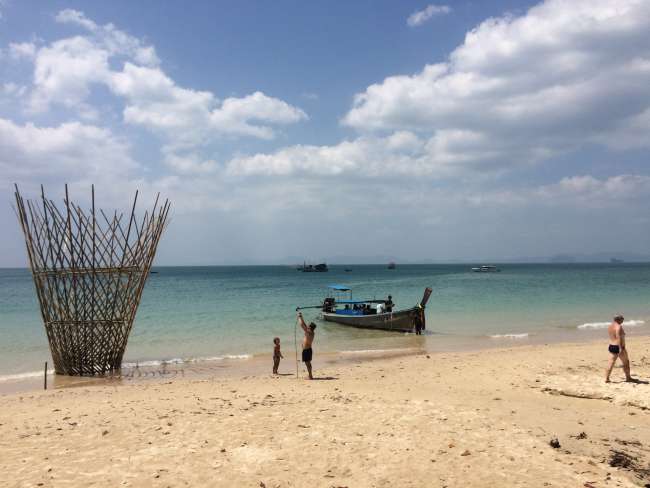
ລາຍງານການເດີນທາງ ປະເທດໄທ

